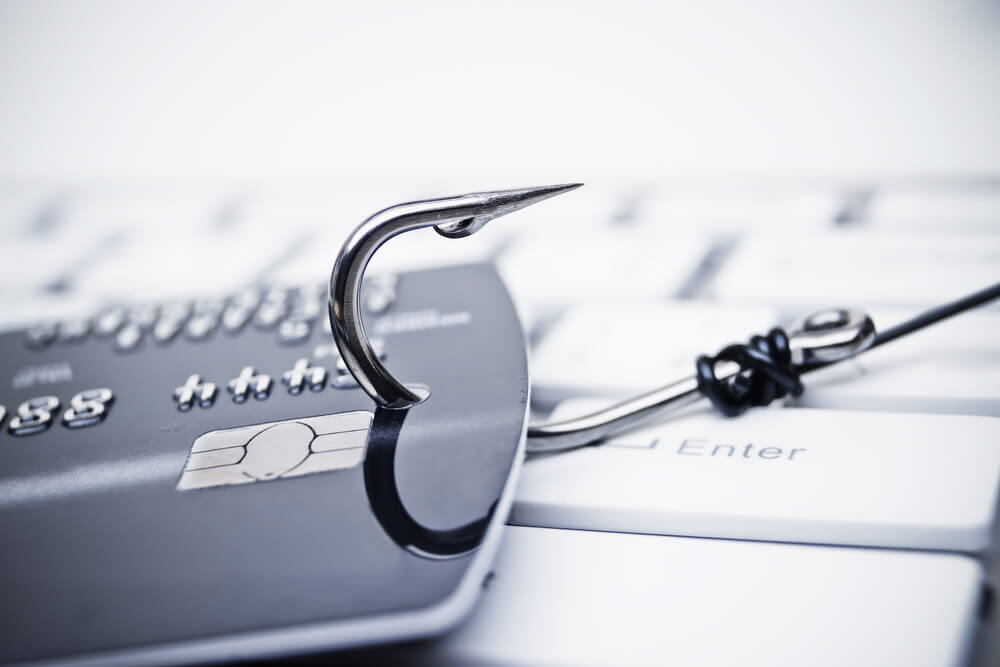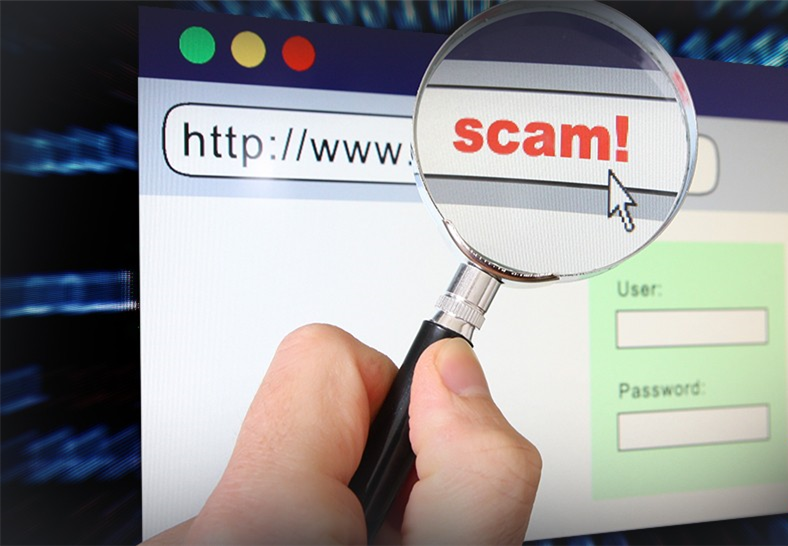
Approximately 74% of organizations in the United States experienced a successful phishing attack last year. Cybercrime has cost individuals and U.S. businesses about $4.2 billion in losses in 2020, up 69 percent from $3.5 billion in 2019.
According to FBI reports, phishing was the most common type of cybercrime in 2020. This trend has increased throughout the years. In fact, phishing cases have almost doubled in frequency, from 114,702 incidents in 2019 to 241,324 incidents in 2020.
If you want to know how to stop cybercriminals from infiltrating your data, then keep on reading. In this overview, we will discuss the effects of spear phishing, along with methods to protect yourself against spear phishing.
>>> Related: 5 Common Cyber Threats To Watch Out For <<<
What is Spear Phishing?
Spear phishing is a targeted cyberattack that uses email, phone, or text to trick people into giving them confidential information for fraudulent purposes. Attackers are primarily looking for sensitive information like passwords, SSNs, Credit and debit card information.
Attackers pose as a trusted source to convince victims to divulge confidential data, personal information, or other sensitive details. The cybercriminals will then use this information for malicious purposes, including identity theft or data breaches.
Effects of Spear Phishing
Data Loss
Having a data leak can potentially lead a business to shut down. According to Forbes, hackers and cybercrime are more devastating to business operations than a Transit Strike, a Fire, and even Floods for small and medium-sized businesses.
Some of the things accompanied by data loss are:
- Damage to reputation
- Potential permanent shutdown
- Productivity disruption
- Loss of sales
Bad PR
One big consequence of falling prey to spear-phishing is that it damages your public relations. Statistics show that approximately 81% of organizations that were attacked lost clientele and suffered reputation damage.
When your business appears on the news as falling victim to phishing, customers can become worried that your company may be unsafe to do business with. This fear might impulse customers to drop your brand for a more reliable competitor.
Repair Expenses
Researchers surveyed 591 IT and I.T. security professionals and saw that almost $6 million per year was being spent on business email compromise (BEC) recovery.
The average cost per company to repair damages due to phishing has increased up to about 15$ million per year for U.S. companies.
Malware is costing large organizations about $5 million per year. These numbers also include $790,000 in ransom payments.
Protect Yourself Against Spear Phishing
Use Strong Passwords
Simple and easy to guess passwords, like your home address or pass12345, are easy for cybercriminals to target.
Before cybercriminals break into your online accounts and steal your data, you need to make it harder for them with a solid password. They are part of the first line of defense against cybercriminals.
A strong password has:
- At least one special character, such as! @ # ?
- Letters and numbers
- No words
- At least 8 characters or more
- Both UPPERCASE and lowercase letters
Overall, strong passwords should be long, complex, and difficult to remember.
Need help protecting your company from phishing attacks? Systems X has a variety of services to help you! Contact them today!
Don't Leave Computer Unattended
Would you leave your car on with the windows down? Probably not. Somebody might take off with it. Likewise, you cannot leave your P.C. unattended because somebody else could sit down and start tampering. In the past, there have been many problems with employees leaving their computers alone and then somebody comes and takes advantage.
To ensure your computer is safe in the office, you need to:
- Set an automatic timer, so you are automatically logged out
- Lock the P.C. when you leave your seat
- Turn it off before you leave
- Never leave it alone while it's on
Be Careful About Personal Information You Post Online
The fewer people know about your personal life, the better. Not sharing sensitive data, like your location or most visited websites, is a great way to avoid spear phishing. The less you share online via social media, the harder it will be for spear phishers to steal your information.
Constantly adjust your privacy settings across your devices to ensure you are the only one who can see your information. It is good practice to only share personal information with those you truly know.
Also, take note of your online profiles and reset your privacy settings if you need to.
Update Computers Regularly
Keeping your computers up to date is a sure way to make it harder for spear phishers to get through your security. Your antivirus is part of the first line of defense to flag phishing attempts, so be sure you have reliable software that is up to date with the latest patches.
One big reason for keeping your operating system on the most recent updates is that it enhances your security. If you are someone who surfs the web a lot, the threat of someone hacking into your system is always possible.
So, fix bugs before they bite.
>>> Related: 4 Cybersecurity Threats (+Solutions and Tips For Every Online User) <<<
Stick to Work-Related Websites
Don't use websites that are not related to work. Many scammers use sites that don't have appropriate security measures to exploit their victims.
If you use a site that is not related to your work, be wary of pop-up windows, as they often disguise as real companies to gain access to your information.
Don't Interact With Suspicious Emails
Spear phishers always research the company or friends you interact a lot with. They are very good at impersonating the name of a person or organization you get emails from regularly.
However, they sometimes get some things wrong, like the tone they use. If the tone they use seems odd, don't click on anything they've sent to you and check the sender's email address. Look for subtle changes like "o' replaced with a "0".
Better Safe Than Sorry
According to phishing.org, "clicking on links that appear in random emails and instant messages isn't a smart move." One thing you can do is hover over links and read the URL before clicking on them.
Ask yourself, do they lead where they are supposed to? If not, leave that email and don't click on anything. When you are in doubt about where a link might take you, you can always go directly to the original source rather than clicking a potentially dangerous link.
Also, spear phishing is so sophisticated now that hackers can masquerade entire websites to look exactly like the real website. So, think before you click next time you get an email from an unknown source. It is better to let it go and be safe than to be sorry.
Report Suspicious Emails
If you know you received a potentially harmful email or text message, contact the appropriate management team to handle this security breach. Any information you give the I.T. team can help reduce the chances of a scammer's success.
If you received a phishing email through Gmail, you can report the suspicious activity or block it directly through the Gmail platform. When you report an email, Google will receive a copy of the email to analyze it to help protect users from abuse and spam.
You can also forward the email to an Anti-Phishing Working Group at reportphishing@apwg.org or go to ReportFraud.ftc.gov.
Victim of Spear Phishing? What To Do Next
Backup Files
It's smart to back up your files frequently, but it becomes more crucial in the event of a spear-phishing attack.
Save your data to an immutable backup or a trusty cloud service to ensure all your information is safe. Also, if you have sensitive information on your phone, back up the data on there too.
If cybercriminals succeed in the attack, you can still have access to your important files if you have them saved in an external source.
Change Passwords
If you think an account has been compromised, change all passwords as soon as possible and consider opting for two-factor authentication where possible.
When a hacker has access to one of your accounts, they can potentially have access to all of them if you use the same password for all accounts.
Run Scan
Since most attacks are very sophisticated, a "simple" virus scan will no longer do. Run a deep scan on all of your devices for viruses and other malware like this is often a very important troubleshooting step.
Using security software to scan your device can help identify and eradicate the threat. Many forms of malware cause Windows and P.C.to have issues with DLL files, unusual hard drive activity, unfamiliar or pop-ups, and other serious Windows problems.
If you properly check your computer for malware when working to solve a security breach, you are minimizing the chances cybercriminals can succeed next time.
Repair Damage
After the attack has been controlled, it's important to change the logins for any important services like financial and email accounts. This includes changing all your passwords, contacting your bank, letting your friends and business partners know about your breach.
Also, don't forget to keep note of anything the attackers might have accessed because they could have implanted some malware to use later on.
Final Word
You can take many security measures to avoid falling for phishing emails. Don't forget you also need to level up your security response if you've already fallen victim to them.
Always have a backup ready at all times, and encrypt files containing private information in case you need them.
Setting obstacles so it's harder for hackers to bypass your security is the best thing you can do for your business.
Are you looking for a team of professionals to take care of your cybersecurity needs? Schedule a Security Assessment Now!
>>> Related: Cybersecurity Risk Management: A Complete Guide <<<

URL Phishing: What It Is And How To Prevent It
With everyone growing increasingly reliant on technology and the digital realm gaining so much power over the physical realm, the concept of ...
 Karen Kiewski
Karen Kiewski



